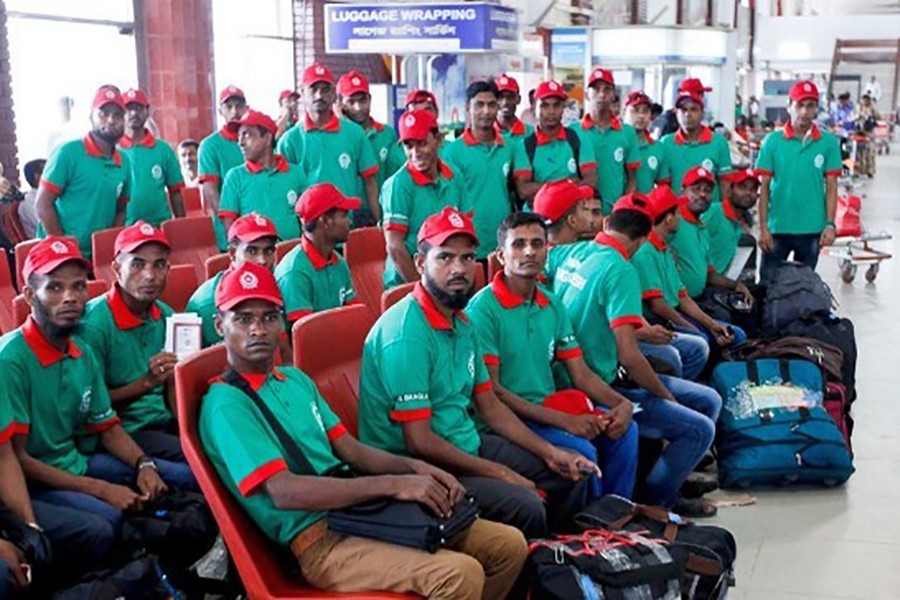Despite a social perception that there might be influence of religious extremism among the Bangladeshi migrant workers, a recent study, focusing on the speculation, found no such evidence.
Besides, the study showed that the expatriate workers, who liked or shared hateful or radical religious posts, do not have the literacy or intellectual depth to differentiate among these issues.
It was conducted on 400 migrant workers - living in Saudi Arabia, United Arab Emirates (UAE), Oman, Kuwait, Qatar, Libya, Singapore, and Malaysia.
The study findings were revealed at a workshop - "Radicalisation and International Migration: Perception and Realities from Bangladesh's Perspective" - organised by BRAC Migration Programme in the city.
The BRAC-supported study was conducted by Professor of International Relations at Jahangirnagar University Dr Shahab Enam Khan.
Chief of Special Branch (SB) at Bangladesh Police Monirul Islam spoke as the chief guest of the event, moderated by Head of BRAC Migration Programme Shariful Islam Hasan.
Deputy Commissioner (research and development) at Counter Terrorism and Transnational Crime (CTTC) unit Muhammad Habibun Nabi Anisur Rashid, and Bureau of Manpower Employment and Training (BMET) Deputy Director Zohora Mansur, among others, spoke at the event.
Monirul Islam said, "Though many Bangladeshis are working abroad, radicalisation among them is minimal. But the problem is... just one incident of extremism may have a far reaching consequence."
Stating that prevention is better than cure, he also said awareness among the migrant workers should be raised, as many of them are sharing hateful or religiously motivated extremist thoughts due to their illiteracy.
Fighting against militancy is not possible only by one institution, rather a holistic approach from the society is required to prevent rise of extremism, he added.
In his presentation, Dr Khan showed that around 17.6 per cent of the migrant workers shared posts containing religious contents in different social media, while about 4.0 per cent of them used social media to learn about and disseminate religious matters.
As per the survey, about 44.8 per cent of the expatriate workers said they spend money for charity works, while around 2.3 per cent workers reported donating money for religious purposes.
Around 34.2 per cent respondents thought young politicians can bring positive changes in the society, while 18.1 per cent expressed the same hope for civil society members, the survey showed.
However, only 5.8 per cent of the migrant workers favoured religious leaders for social change.
Dr Khan said around 89 per cent of the survey respondents expressed that they are proud of their Bengali identity, which proves that they strongly cherish their cultural roots.
He said instead of religious reasons, it was found in many studies that people more often lean towards extremism due to economic and social reasons.
"The study was conducted preciously on expatriate workers, where it was found that exposure to radicalisation and violent extremism among Bangladeshi migrant workers is low," he added.
However, he emphasised conducting a comprehensive research on expatriate Bangladeshis, as apart from workers, many other people are also living abroad.
adnan.hossain3017@gmail.com


